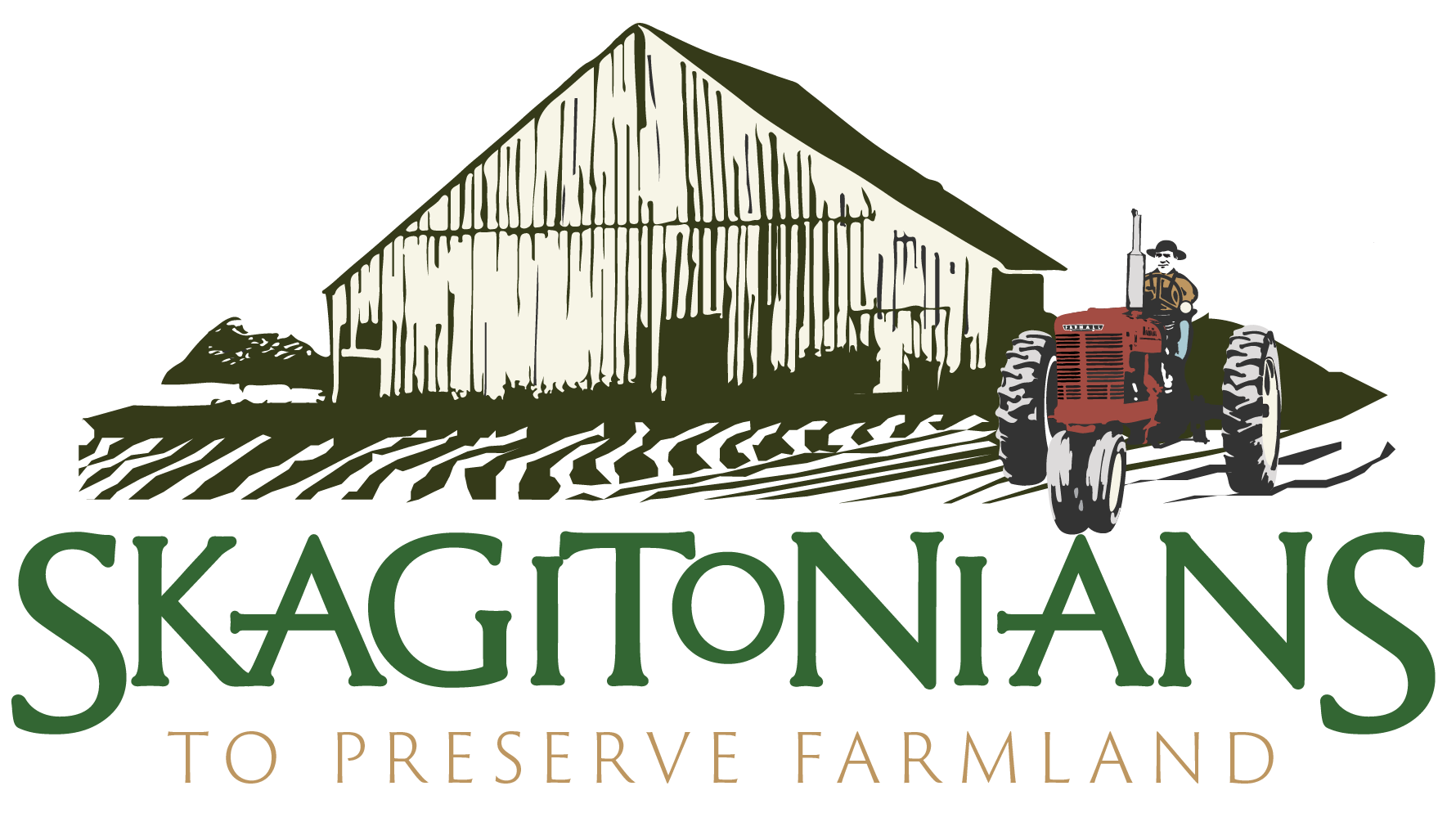2020 Our Valley Our Future Award Winner - Oscar Lagerlund
Oscar Lagerlund, Lagerwood Farms – SPF’s Community Legacy in Agriculture Award
Against the backdrop of the North Cascade Mountains, 195 black and white Holstein cows graze peacefully on bright green spring grass. They’re part of a quintessential Skagit Valley farm, built and evolved over the last 100 years by the same family.
A large white farmhouse, built in 1913, has been home to the Lagerlund family since they purchased the homestead in 1919. Blackberries surround an abandoned cinderblock and cedar milking parlor – it was state-of-the-art when built in 1953 by Oscar Lagerlund and his father Ed, who passed away in 1981 at age 89. Three large red barns, built over the decades, still house some of the farm’s current herd. A smattering of older buildings and equipment lie scattered around the homestead. John Deere tractors line up against one barn, ranging in age from 1953 to 1977. Very little is shiny or new. It’s clear that dedication and hard work built the farm one day at a time, unlike corporate farms built in a season with money from deep-pocket investors increasingly snapping up farmland across the country.
Not only has Oscar left behind an economically feasible farm for his family, his legacy reaches the entire Skagit Valley.
“I’m no prophet,” Oscar said on a recent walk through the farm. “But it was pretty obvious what was going to happen.”
Back in high school in the 1950s – when small family farms were the norm in Skagit County – Oscar could see that if pressure for cheap food continued, corporate farms would take over the food supply and farmland. Also, later on, immense profits to be made by selling and developing farmland would increasingly become irresistible for struggling small farmers to resist.
In an effort to combat these forces and retain Skagit County’s character as a valley of small, family-owned farms, Lagerlund, in his position on the Skagit County Planning Commission, became instrumental in preserving Skagit County’s farmland.
Among other things, Oscar was a leader in increasing the minimum agricultural parcel size to 40 acres, as well as introducing zoning laws that discourage residential development and commercial activities other than farming. Eventually, he said, he was kicked off the Planning Commission because he was “too farming-centric.” Since then, he has served in many other capacities in the fight to protect Skagit’s precious remaining farmland from going the way of bulldozers and asphalt.
One of the main reasons the Lagerlunds have been successful over the last century has been their willingness to embrace change. Oscar built up his own herd from two heifers purchased when he was fourteen years old, to 400 cows.
When his son Nels Lagerlund wanted to take over the farm, they went organic, a niche that would allow them to compete with large corporate farms. Oscar left for the night, and Nels sold all but six heifers to rebuild the now 195-cow organic herd. Oscar couldn’t bear to watch his lifetime of work sold away, but he knew it was best for the farm and its future.
“It’s the only reason we’re still here,” Nels said.
“They’re farming like we used to,” Oscar added. “These [organic] cows have a lot less stress. And the milk, it just tastes so much better.”
Farming, of course, isn’t an easy life, and the Lagerlunds say it’s becoming harder as ever-increasing government regulations, reporting requirements and licenses put more pressure on small family farms, Nels said, by creating an environment where giant corporate farms, which can afford attorneys and lobbyists and the newest equipment, have a significant competitive advantage.
Resisting the forces of consolidation and corporate farming, the Lagerlunds continue to adapt and strive to survive as a smaller farm for the generations of their family to come.
“I was always going to be a farmer,” Nels said. “It’s a heritage thing.” Nels’s great-grandfather was a dairy farmer in Sweden, bringing his occupation to Skagit County. Oscar’s grandson, Nels’s nephew, the fifth generation of Lagerlund farmers in Skagit County, is headed to college this year to learn more about agriculture.
Oscar remembers plowing fields at nine years old, and recalls the days when his family used horses to work the fields. Oscar’s father was disabled when Oscar was 12 years old, and the burden of keeping the family farm going fell on him after that.
“It wasn’t like I chose it,” he said.
There were times that he dabbled in other kinds of farming, like growing peas and seed crops, but he never left dairy.
Since Nels took over the farm in 1996, Oscar said he comes to the farm almost daily to visit his son and the cows. He wears a cowboy hat, jeans and a John Deere coat. His gait is that of a man who has worked hard his entire life, enduring injuries both large and small.
“I didn’t want to be a dairy farmer,” he said. “I didn’t like waking up at 4 a.m. everyday. But I tell you what. When I’m not around them, I miss the damn things.”
Story and photos by Tahlia Honea: info@skagitonians.org
